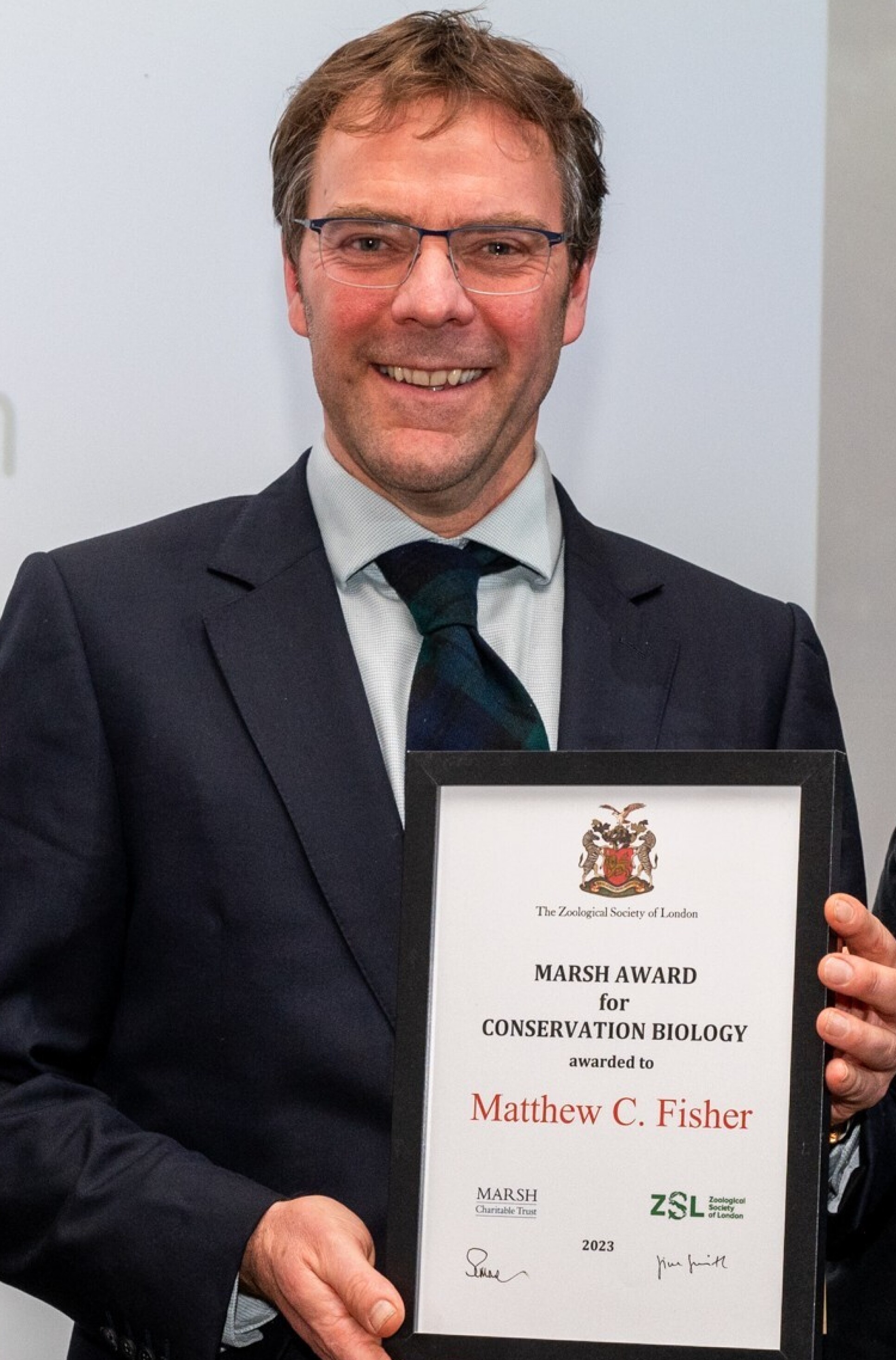Zoological Society award for fungi expert
by Jack Stewart

Professor Mat Fisher has been awarded the Marsh Award for Conservation Biology by the Zoological Society of London.
The Marsh Award, presented in partnership with the Marsh Charitable Trust, is awarded for fundamental science that has significant impact on conservation biology.
Professor Mat Fisher, Professor of Fungal Disease Epidemiology in the School of Public Health, was recognised for his research into chytridiomycosis as a threat to amphibian biodiversity.
Fighting the threat to amphibian species
Chytridiomycosis (chytrid) is an infectious disease of amphibians caused by the fungus Batrachochytrium dendrobatidis (Bd). The fungus has severely affected over 700 amphibian species worldwide, and has made more species extinct than any other infectious disease known to science.
Early research on chytrid was largely led by researchers with taxonomic, veterinary or ecological expertise, and Mat’s knowledge on fungi and epidemiology was much sought after. Mat’s many research achievements include: the first description of the evolutionary history of Batrachochytrium dendrobatidis; the Out of Asia hypotheses and identification of the genetic variants behind global amphibian declines; the identification of a new species of Batrachochytrium responsible for salamander declines across Europe; and the implementation of mitigation strategies for chytridiomycosis.

Mat is Head of the Department of Infectious Disease Epidemiology in the School of Public Health and leads the Fungal Pathogens theme in the MRC Centre for Global Infectious Disease Analysis. He is also Co-director of the Georgina Mace Centre for the Living Planet.
On receiving the award Professor Fisher said: "This wonderful award and recognition owes to the combined efforts across 20 years of a dedicated cast of colleagues, students, early-career researchers and friends. Together, we have been able to use science to understand one of the most tragic losses of biodiversity witnessed in modern times, and to use this understanding to try and prevent further losses caused by emerging infections."
Article text (excluding photos or graphics) © Imperial College London.
Photos and graphics subject to third party copyright used with permission or © Imperial College London.
Reporter
Jack Stewart
School of Public Health